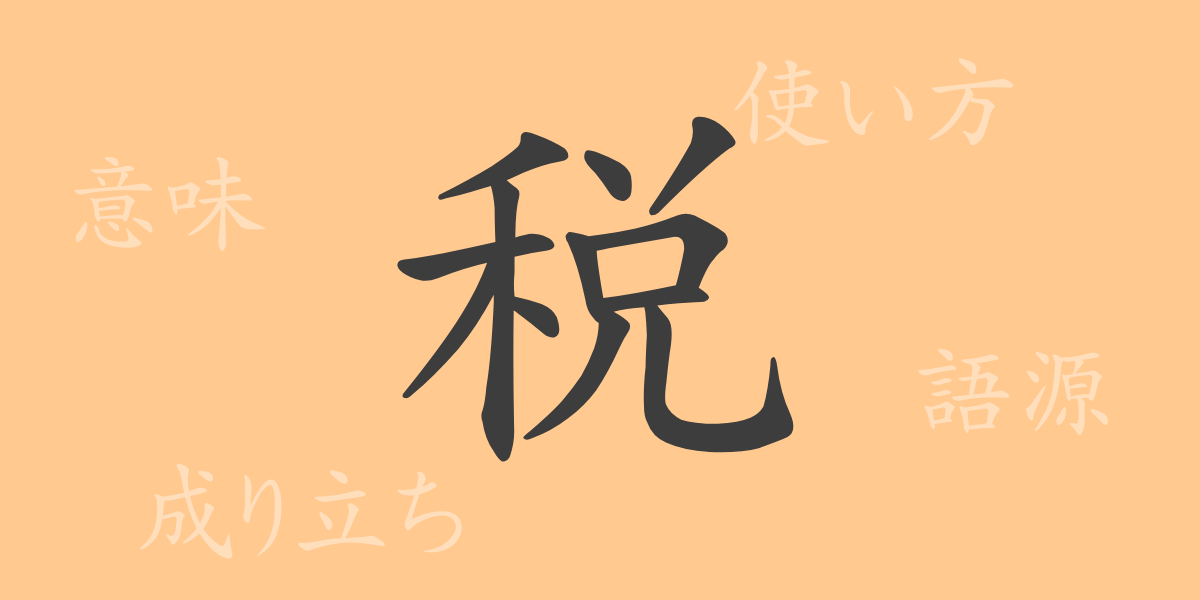The kanji ‘税’ (ゼイ) is deeply embedded in our lives, reflecting its significance and the taxes we encounter daily. This article explores the etymology, meanings, applications, and phrases related to ‘税’, enhancing our understanding of how it influences our everyday understanding and responsibilities.
Origins of 税
The kanji ‘税’ originally signified cloth, evolving from the character ‘巾’. In ancient China, it referred specifically to cloth delivered as tax to the state. Over time, the scope broadened to include various goods and currencies, establishing ‘税’ as a crucial concept in national finance, symbolizing compulsory contributions essential for governance.
Meaning and Usage of 税
Today, ‘税’ represents the compulsory monetary contributions levied by governments to fund public welfare and infrastructure. Commonly encountered in various forms like consumption tax, income tax, and corporate tax, ‘税’ is a staple in fiscal discussions, reflecting its pervasive role in funding societal needs.
Readings, Stroke Count, and Radical of 税
The kanji ‘税’ is foundational in understanding civic duties and financial responsibilities:
- Readings: On’yomi ‘ゼイ’; there are no Kun’yomi readings.
- Stroke Count: ‘税’ consists of 12 strokes.
- Radical: The radical of ‘税’ is ‘禾’ (のぎへん), associated with grain and agriculture, symbolizing the traditional basis of taxation.
Phrases and Idioms Using 税
‘税’ is part of numerous expressions reflecting its integral role in governance and personal finance:
- 税金泥棒 (ぜいきんどろぼう): A derogatory term for someone who embezzles public funds.
- 税を納める(ぜいをおさめる): The act of paying taxes to governmental authorities.
- 税の一部を免れる(ぜいのいちぶをまぬがれる): To be exempt from paying a portion of taxes due to specific circumstances.
Conclusion on 税
‘税’ not only shapes our fiscal policies but also our societal contributions as responsible citizens. Understanding the evolution and implications of ‘税’ offers insights into our roles within society, fostering a deeper appreciation of our duties and rights as taxpayers. This exploration of ‘税’ helps cultivate a more informed and conscientious community.

























